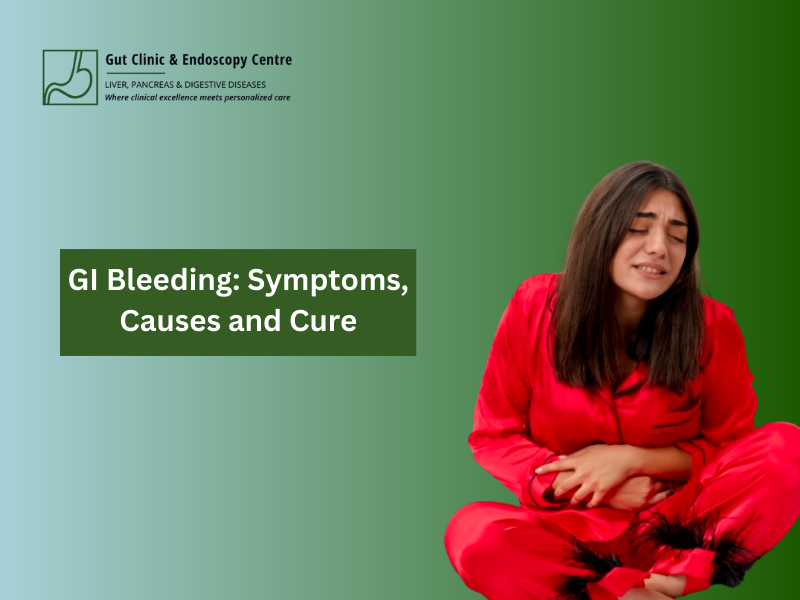

For appointments call:
(99997) 40985


Gastrointestinal (GI) bleeding is a significant medical condition that affects thousands of people each year. According to a study, the incidence of major bleeding ranges from 3% to 16% in India. Don't let GI bleeding catch you off guard! This blog is here to equip you with the knowledge to spot the signs, understand the causes, and get the help you need – fast.
GI bleeding is any form of bleeding that occurs within the gastrointestinal tract, which extends from the mouth to the anus. The bleeding can be categorised into two main types:
Several conditions can lead to GI bleeding, with some being more prevalent than others:
Recognising the symptoms of GI bleeding is crucial for timely diagnosis and treatment. Symptoms differ depending on the severity and location of the bleeding:
Proper diagnosis of GI bleeding involves a thorough assessment:
Knowing when to seek medical help is critical for managing GI bleeding:
Warning Signs: Seek prompt medical attention if you experience large amounts of blood in vomit or stool, severe abdominal pain, or signs of shock (e.g., rapid heartbeat, low blood pressure, confusion).
Urgent vs. Non-Urgent Symptoms: While severe symptoms require emergency care, less severe symptoms (e.g., mild abdominal pain and little amounts of blood in stool) should still prompt a visit to a doctor, albeit not as urgently.
GI bleeding is a serious condition with a variety of causes and symptoms. Recognising the signs early and seeking timely medical intervention can significantly improve outcomes. If you or someone you know experiences symptoms of GI bleeding, consult a healthcare provider promptly. Sharing this knowledge can also help raise awareness regarding the importance of early detection, prevention and possible treatment.
Are you experiencing any worrying symptoms, such as blood in your vomit or stool, unexplained fatigue, or severe abdominal pain? These could be signs of GI bleeding requiring immediate medical attention. Don’t wait and wonder—consult with Dr Ajay Kumar or Dr Piyush Vishwakarma at Gut Clinic and Endoscopy Centre. We will provide a thorough diagnosis and effective treatment to address the issue promptly. Early intervention is crucial in managing GI bleeding and preventing further complications.